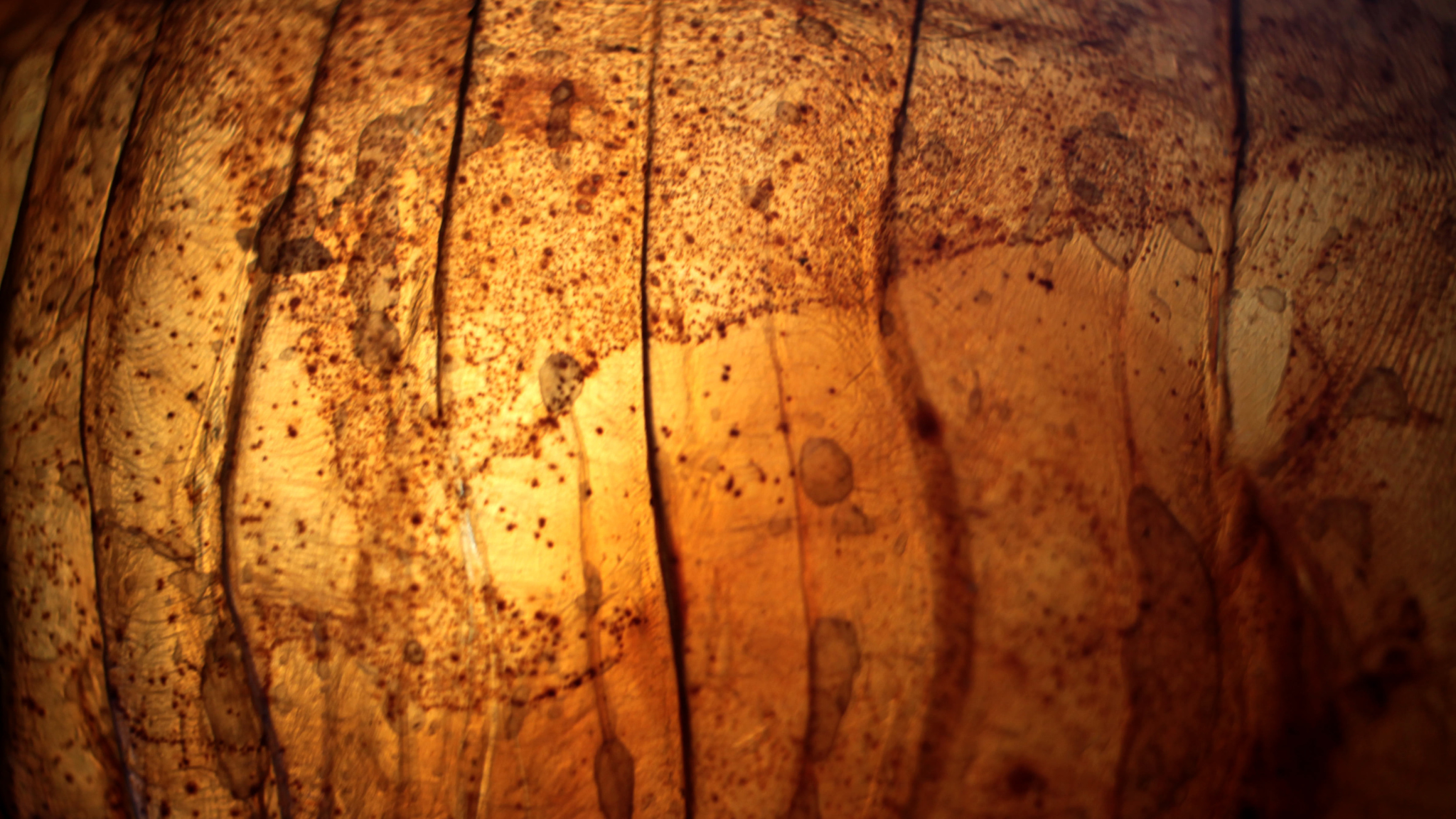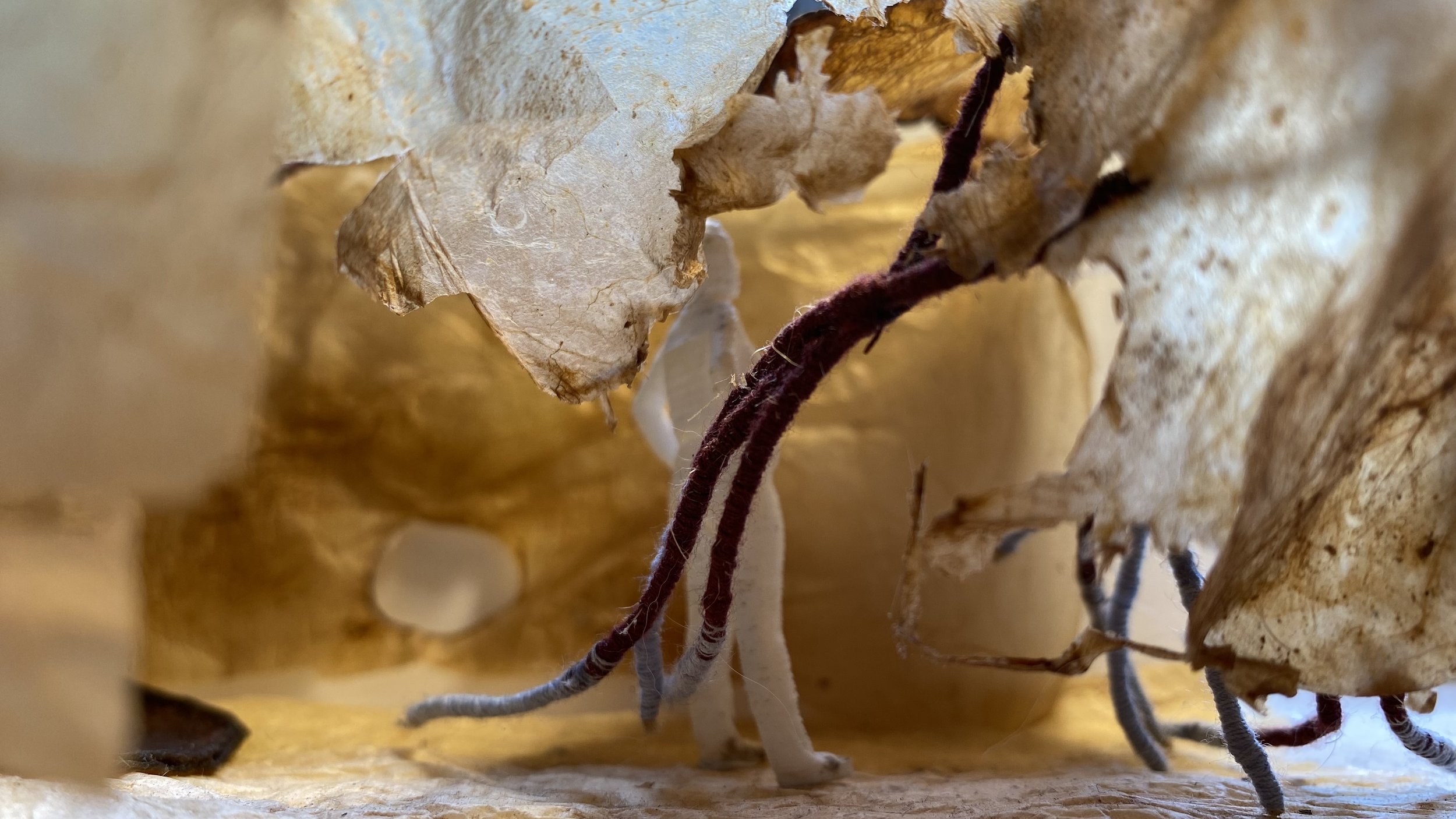
hide
hide (verb) to put something or someone in a place where that thing or person cannot be seen or found, or to put yourself somewhere where you cannot be seen or found.
hide (noun) the strong thick skin of an animal
hide (noun) a place where people can watch wild animals or birds without being noticed by them
hide is a multi-disciplinary scenographic installation, which responds to the PQ23 theme: “RARE: art springing out of ideas, materials, artistic approaches, and design practices that connect to the human level from within your environment, with its genius loci and unique situation.”
What is rare in this contemporary moment? Refuge, stillness, space to take stock and rethink the destructive pathways that led us here. The installation, hide, is conceived as an immersive installation, a cave or refuge space. It invites the viewer to “connect to the human level” by way of imagining beyond the human, using our sensorial imaginations to connect across species into more-than-human worlds.
Kombucha leather and other biotic materials create a structure evocative of a root network, the microbial world of soil, the underside of a leaf or mushroom. This structure is a refuge into which the viewer can crawl, rest, and consider our situatedness, vulnerability, scale and interstitial relationships. Embedded in each of the branching tentacles is a ‘sensory’ organ or feeler that contains a text, an object or an audio player. Emanating from these feelers - a soundscape of collaged texts commissioned by writers from southern Africa, which invite listening and journeying into empathic relationship with microbes, elephants, cephalopods, earthworms, and sensory systems beyond our own.
artistic concept
Southern African lands have historically witnessed all kinds of migration, settlement, capture. People followed rivers or pathways that elephants made: routes for trade, for fleeing turmoil, for driving cattle, or trudging to unknown waters, enslaved. Colonists used these same pathways to penetrate and infiltrate. Now, under the exploitative logics of neoliberal capitalism, these become superhighways for extraction of minerals, timber, animal products - resources that are being stripped, extracted, mined and burned. Climate related catastrophes force people to uproot again, to migrate and seek new homes, where they will face fire, rejection, xenophobia. Being connected and networked now also means surveillance. Is there anywhere to hide?
It is time for stillness, and stopping. It is time to listen for new understandings.
We invite the seeker/fugitive/traveller to take refuge, to be present for journeys that can happen in stillness. These routes are now portals, to send echo-location into the consciousness or experience of other beings, human and more-than-human, into soil and the roots of remembering trees. Rethink wildness as belonging, virus as guru, gut as biome, fungus as architecture, seeds as sisters and forest as family. How do we sense into soil structures and root formations? How do insects experience taste and sense one another? How do birds hear?
Turning to bio-systems to find patterns and structures for thought, story, economy and exchange, we remember that our bodies do not begin or end at our fingertips; that artistic collaborative networks follow the same fractal branching patterns as roots and rivers and that our skins are permeable membranes.
While the experience is conceived as a “refuge”, it is not an invitation to pastoral escapism. The materials and other references remind us of Empire’s trajectories: kombucha leather is brewed from sugar and tea, the branching tentacles are constructed from wrapped cotton cloth - commodities which fuelled Empire’s conquests. Rather, we ask the viewer to consider how, like composting soil bacteria, like fermentation, we might alchemically transform the logics of runaway consumption, production, conquest and ownership, into a related awareness of where we exist, grow and decay.




